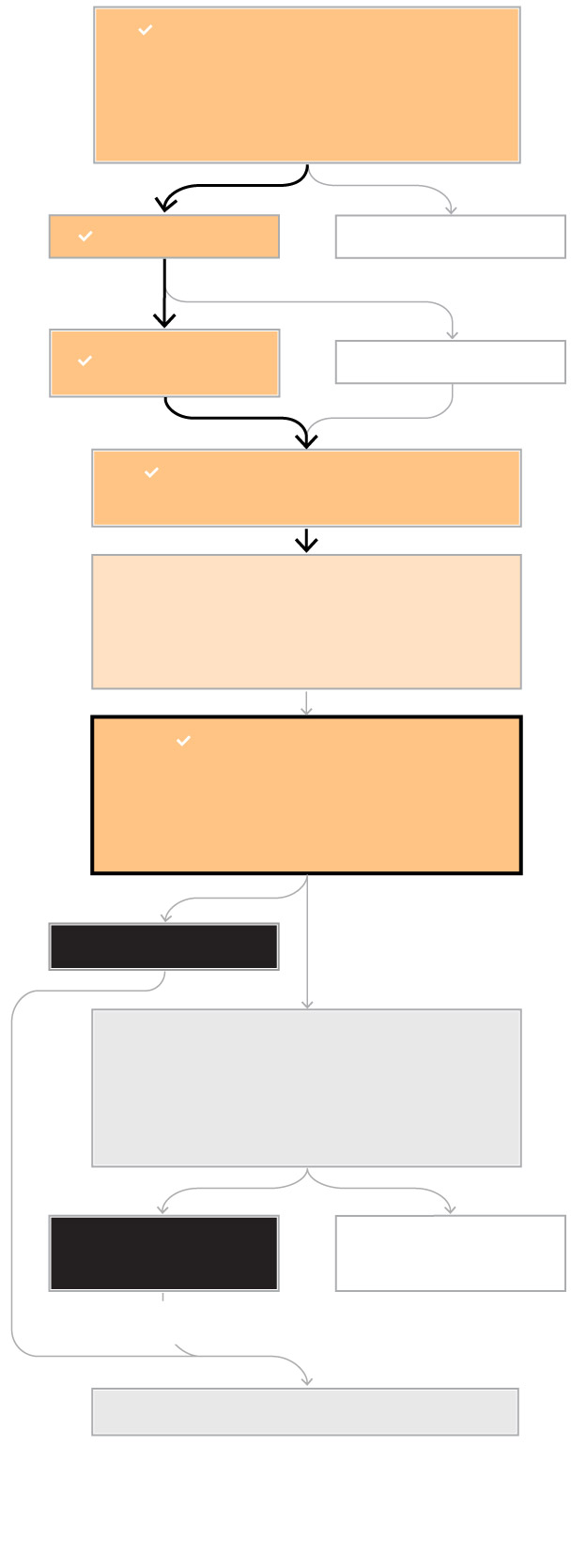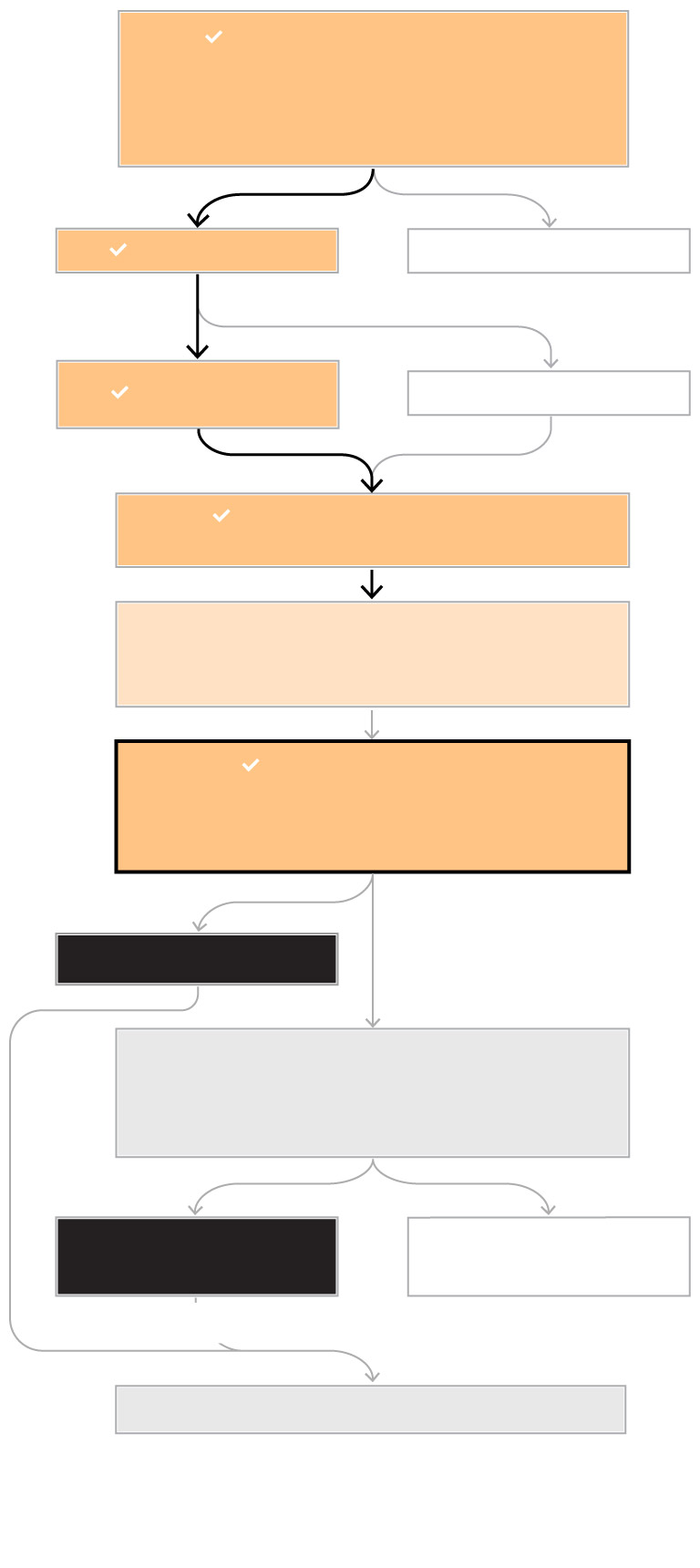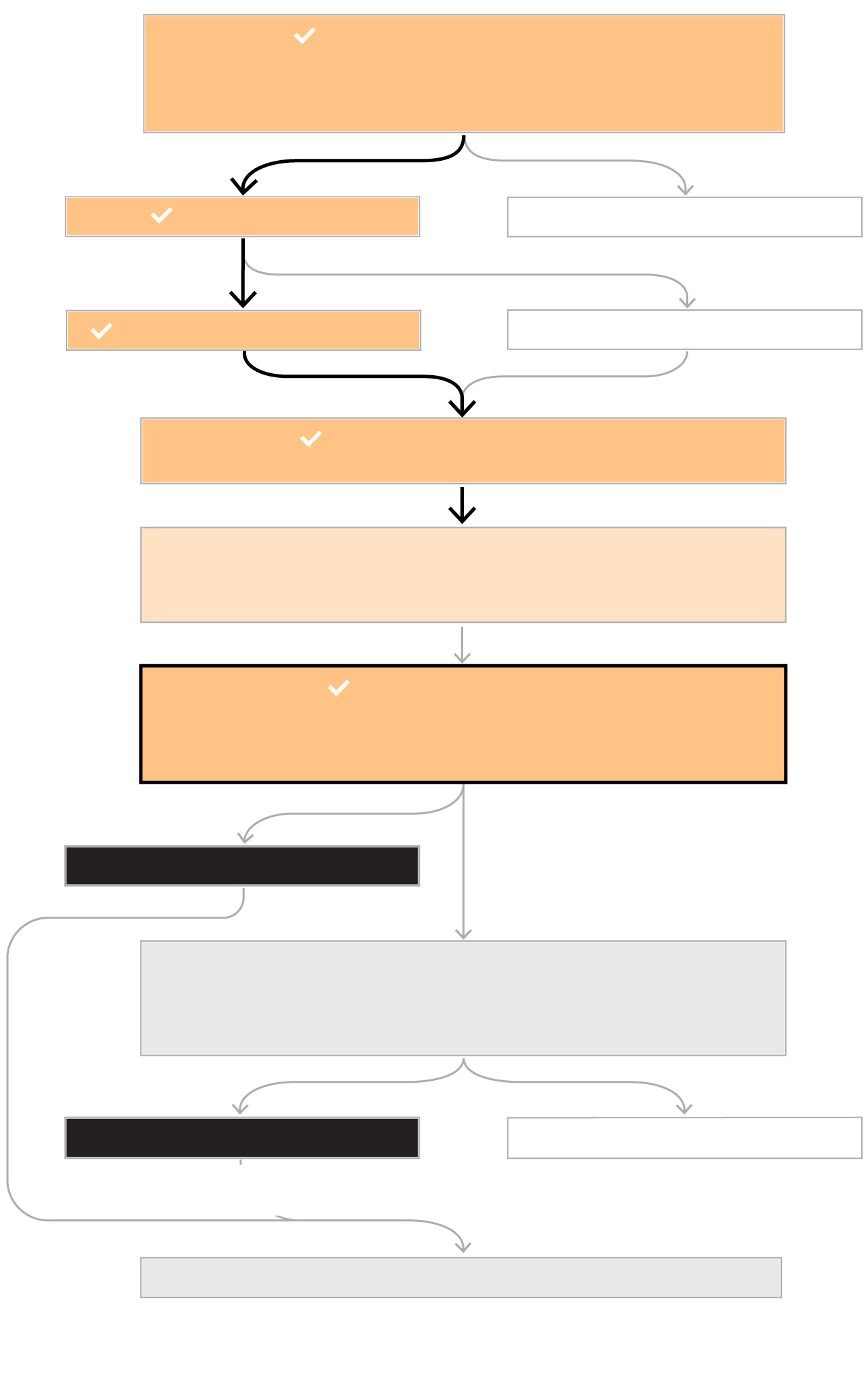Trump is charged with a crime — racketeering — that carries up to 20 years in prison
Trump has been charged with violating Georgia’s Racketeer Influenced and Corrupt Organizations Act, or RICO in legal circles. A federal version of the law was originally designed to prosecute mob bosses who were leading complex criminal enterprises. Georgia’s version, which is one of the most expansive in the country, allows prosecutors to weave together several alleged crimes — in this case, conspiracy to defraud the state, false statements and writings, impersonating a public officer, forgery, computer theft and dozens of others — into one charge that carries up to 20 years in prison.
Prosecutors allege the Trump campaign is the criminal enterprise and the scheme was to overturn the popular vote in Georgia. After a two-and-a-half-year investigation, prosecutors put together a 98-page indictment, with 19 defendants and 13 charges against Trump alone.
The whole point of using this statute is to nab the big fish, say legal experts.
“The goal of this criminal enterprise is to keep Trump in power, so it would be essential to have Trump indicted,” said Clark Cunningham, a law professor at Georgia State University.
There’s a similar federal law on the books. Georgia has one of the more expansive state versions, because it allows for a wide variety of crimes to be folded into the racketeering charge. Politicians, a prominent rapper and public school teachers have been prosecuted under Georgia’s racketeering law. Caren Morrison, a former federal prosecutor and now an associate law professor at Georgia State University, said that under Georgia law, if someone is part of the alleged conspiracy, they don’t have to set foot in Georgia to be charged.
What is an indictment? Georgia’s indictment of Trump lays out threats, intimidation
An indictment is a written statement of criminal charges that has been approved by a grand jury; in this case a group of randomly selected people from Georgia who heard prosecutors’ evidence against Trump. Trump called, cajoled and even threatened top Georgia election officials and put together a months-long campaign to lie about the election results in Georgia, the indictment alleges.
The examples given in the indictment mostly fall into these categories:
Trump called at least six state officials and urged them to find and throw out enough suspect votes to offset his loss in the state: After the results in Georgia were final, Trump talked to Georgia Secretary of State Brad Raffensperger, a Republican, and in an intimidating, hour-long phone call said he wanted to find enough votes to flip the state’s results. To prosecutors, that call is a central piece of evidence of Trump’s intent to commit a conspiracy to overturn the election results: “This was an overt act in furtherance of the conspiracy,” the indictment reads. There’s a recording of the call, and Trump has never denied its authenticity. In fact, he recently stood by what he said: “You owe me votes because the election was rigged,” is how he summarized his conversation. Trump also called the state’s top Republican leaders: Gov. Brian Kemp, Lt. Gov. Geoff Duncan, Attorney General Chris Carr and House Speaker David Ralston, as well as a top election official in Georgia as she was investigating ballot fraud. His top advisers called many others.
Trump falsely claimed, without any proof, that widespread fraud tainted the election results: Trump and his allies’ false statements are a key part of this indictment. The indictment methodically lists Trump’s tweets falsely claiming he won in Georgia, a call he made to Vice President Mike Pence deriding him as a “wimp” and a letter he sent to Raffensperger almost a year after the election falsely claiming ballot fraud. “Trump knowingly, willfully and unlawfully [made] false statements,” the indictment reads. “This was an act of racketeering activity [under Georgia law] and an overt act in furtherance of the conspiracy.”
Trump publicly attacked election officials in Georgia: As election results were being counted, Georgia’s governor, secretary of state and top aides talked about the intimidation and even death treats they and their workers received from Trump supporters. One top official in Georgia directly tied the violent rhetoric to Trump’s actions: “Mr. President,” he said, “you have not condemned these actions or this language.” While this was going on, Trump attacked some of these officials, calling then “corrupt” at a speech the day of the attack on the Capitol. The indictment lists Trump and his allies’ baseless statements about one election worker in particular, Ruby Freeman. She and her daughter said they were forced into hiding after being assaulted with racist attacks for doing their job. The indictment charges a police chaplain from Illinois for going to Freeman’s home and allegedly threatening her.
Accessing election equipment: Well after the votes were counted, Trump allies copied sensitive election equipment in a rural Georgia county then shared it with election deniers across the country. They didn’t have the ability to change votes, but security experts worry they gave hackers valuable insight into election infrastructure. Prosecutors allege they broke various Georgia computer security laws, like unlawful possession of ballots, computer theft, computer trespass and interference with primaries and elections. A local election official in Coffee County, Georgia — Misty Hampton — was indicted, as well as the former GOP chair of the county, Cathleen Alston Latham. Prosecutors allege this is connected to Trump because his top lawyers met with him at the White House in December to discuss “certain strategies and theories intended to influence the outcome of [the election], including seizing voting equipment.” Later, people listed in the indictment tried to transmit the data from Coffee County to the Trump campaign, it alleges.
Forgery related to fake electors: After the 2020 election, Republicans in seven states that Trump had lost created their own slates of pro-Trump electors to compete with the official state slates of pro-Biden electors. In Georgia, they met at the state Capitol like the legitimate electors and the former head of the Republican Party in Georgia led the meeting. He is indicted on a charge of allegedly impersonating a public officer. So is a current state senator in Georgia, Shawn Micah Tresher Still. The indictment alleges this is connected to the Trump campaign because his lawyer Rudy Giuliani helped orchestrate the meeting of fake electors.
Trump’s defense: He didn’t do anything wrong, and this is all protected political speech
“This was a perfect phone call,” he has said of his call to Raffensperger. But his pressure to overturn results came after election results were certified; after two statewide recounts led by Republicans; and after multiple court challenges alleging widespread fraud were thrown out.
Trump’s lawyers in the Jan. 6 indictment have also argued his questions about the election are protected by the First Amendment. As the indictment was released in Georgia, they argued that trying to prosecute Trump’s tweets constitutes a violation of free speech. That will be litigated in upcoming trials. But the judge overseeing the Jan. 6 case recently warned that free speech is “not absolute.”
Catching up on the details of the Georgia election investigation
Trump was the first Republican president since George H.W. Bush in 1992 to lose Georgia, and he obsessed about his loss there. So he subsequently put enormous focus from his perch in Washington on trying to overturn Joe Biden’s win. In the final weeks of Trump’s time in office, Trump lawyers, political operatives, local GOP officials and senior White House officials helped Trump apply leverage to state Republican lawmakers and leaders to get them to overturn the election results.
Prosecutor Fani Willis has said people are likely to go to jail if convicted.
Fani Willis is the top prosecutor for Fulton County in Georgia, which encompasses Atlanta. She’s a Democrat who was elected to the job in 2020, and soon after she got the job, she launched an investigation into Trump’s attempts to overturn the election results in her state. She said she felt a responsibility to dig into this after she heard the recording of the phone call between Trump and Georgia’s secretary of state.
A local prosecutor has the authority to investigate a former president because under the constitution, states are sovereign entities and have the ability to pass — and enforce — their own laws, said Kristy Parker, a former federal prosecutor who has worked under multiple administrations.
The only exception is if the president were carrying out his or her official duties. “But there is no reason to think that is going to apply here,” Parker said, “because what Trump is doing, based on what we know — the phone call and publicly available facts — is he was trying to get a state official and state bodies to set aside a free and fair election in Georgia. That is not part of any president’s official duties.”
Throughout the investigation, Willis has been vocal about the likelihood that people in this election fraud investigation will go to jail.
“I refuse to fail,” she told the Wall Street Journal recently.
Trump will likely appear in court in Georgia to enter a plea
It’s called an arraignment, and this could happen just weeks after Trump was arraigned in Washington, D.C., for felony charges related to his efforts to overturn his election loss in several states; not just Georgia. He pleaded not guilty. Willis said those charged must surrender by Aug. 25.

GRAND JURY INVESTIGATION
Prosecutor secretly presents evidence to a
grand jury of 23 county residents and three
alternates. At least 16 of them must be
present. Twelve votes are needed to indict.
NO INDICTMENT
INDICTMENT
No charges filed
VOLUNTARY
SURRENDER
ARREST
PROCESS AS A DEFENDANT
Fingerprints and photos are usually taken.
ARRAIGNMENT
A public court hearing at which a defendant
enters an initial plea to charges. A judge sets
release conditions, pending trial, and may
set further scheduling dates. Even though
multiple people have been indicted,
defendants will make their initial
appearances individually.
PRETRIAL HEARINGS
Further hearings and deadlines may be set
for prosecutors to turn over evidence to
defendants. The defense prepares any
pretrial motions, such as to toss out charges
or exclude evidence. Defendants will likely
make their first joint appearances during
these hearings.
GUILTY PLEA
TRIAL
Could take months before a trial would start.
DEFENDANT FOUND
GUILTY
DEFENDANT FOUND
NOT GUILTY
May be
appealed
Acquitted of
charges
SENTENCING
May be
appealed
Source: Fulton County Superior Court
NICK MOURTOUPALAS/THE WASHINGTON POST

GRAND JURY INVESTIGATION
Prosecutor secretly presents evidence to a grand jury
of 23 county residents and three alternates.
At least 16 of them must be present.
Twelve votes are needed to indict.
NO INDICTMENT
INDICTMENT
No charges filed
VOLUNTARY SURRENDER
ARREST
PROCESS AS A DEFENDANT
Fingerprints and photos are usually taken.
ARRAIGNMENT
A public court hearing at which a defendant enters an
initial plea to charges. A judge sets release conditions,
pending trial, and may set further scheduling dates.
Even though multiple people have been indicted,
defendants will make their initial appearances
individually.
PRETRIAL HEARINGS
Further hearings and deadlines may be set for
prosecutors to turn over evidence to defendants.
The defense prepares any pretrial motions, such as to
toss out charges or exclude evidence. Defendants will
likely make their first joint appearances during
these hearings.
GUILTY PLEA
TRIAL
Could take months before a trial would start.
DEFENDANT FOUND
GUILTY
DEFENDANT FOUND
NOT GUILTY
May be
appealed
Acquitted of
charges
SENTENCING
May be
appealed
Source: Fulton County Superior Court
NICK MOURTOUPALAS/THE WASHINGTON POST

GRAND JURY INVESTIGATION
Prosecutor secretly presents evidence to a grand jury of 23 county
residents and three alternates. At least 16 of them must be
present. Twelve votes are needed to indict.
NO INDICTMENT
INDICTMENT
No charges filed
ARREST
VOLUNTARY SURRENDER
PROCESS AS A DEFENDANT
Fingerprints and photos are usually taken.
ARRAIGNMENT
A public court hearing at which a defendant enters an initial plea to
charges. A judge sets release conditions, pending trial, and may set
further scheduling dates. Even though multiple people have been
indicted, defendants will make their initial appearances individually.
PRETRIAL HEARINGS
Further hearings and deadlines may be set for prosecutors to turn over
evidence to defendants. The defense prepares any pretrial motions,
such as to toss out charges or exclude evidence. Defendants will likely
make their first joint appearances during these hearings.
GUILTY PLEA
TRIAL
Could take months before a trial would start.
DEFENDANT FOUND GUILTY
DEFENDANT FOUND NOT GUILTY
Acquitted of
charges
May be
appealed
SENTENCING
May be
appealed
Source: Fulton County Superior Court
NICK MOURTOUPALAS/THE WASHINGTON POST
Trump could be fingerprinted and pose for a mug shot
Fulton County Sheriff Patrick Labat has said that if Trump is charged, he will be treated like any other arrestee — subject to a mug shot that could be made public and a surrender at the county jail where squalid conditions and an inmate death recently sparked a Justice Department investigation.
“Unless someone tells me differently, we are following our normal practices,” Labat said.
This is Trump’s fourth criminal indictment
His criminal trials will be intertwined with the presidential election.
- In New York: He was indicted in April for allegedly falsifying business records to keep an alleged affair quiet during the 2016 election. He pleaded not guilty and faces a trial in March, right at the height of the primary elections for president.
- In Florida: He was indicted in June for allegedly hiding classified information and lying about it, then indicted again for allegedly trying to delete evidence. He faces a trial in May, around the time the Republican Party is finalizing or already finalized its nominee for president.
- In DC: He is awaiting a trial date after being charged with plotting to overturn the 2020 election and the events that led up to the Jan. 6, 2021, attack on the U.S. Capitol by Trump supporters. The government has proposed starting this trial in early January, before voting starts in primary elections for president.
- Also in New York: A jury found he sexually abused a woman who alleged he raped her in the 1990s. Trump has maintained his innocence. He faces a second defamation trial in January for calling the woman, E. Jean Carroll, a “whack job” a day after the jury reached its verdict.
Holly Bailey contributed to this report

